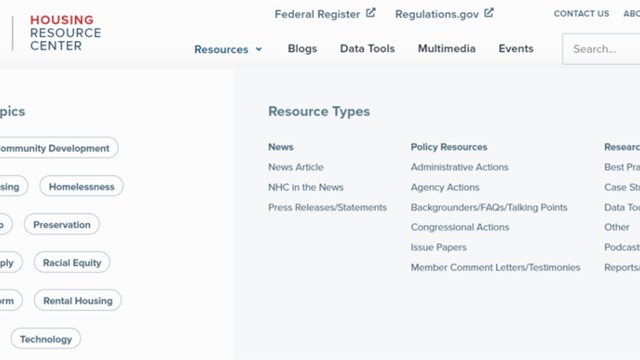While residents generally like the idea of community that living in a condominium or co-op provides (that’s why many opt for this type of ownership), few are as excited about the idea of serving on their community’s governing board, or on any of the various committees their board may set up to oversee special projects. As important as long-term supervision of many specific aspects of community life may be, it’s often very difficult to find volunteers willing to do their part. Among the factors that influence volunteering for board service are the time commitment (real or perceived), discomfort with potentially being the focus of resident anger and antipathy, and plain old apathy.
On the other hand, for those who overcome those obstacles and hesitations, board service can provide a feeling of accomplishment, a level of prestige within the community, and a way to have a personal hand in maintaining the security and safety of what is likely their biggest financial investment.
The Value of Time
Board service is completely voluntary, and the most common reason both co-op shareholders and condominium owners cite for not volunteering is lack of time. It’s not hard to understand why this is; board and resident meetings are generally held in the evening, and while those meetings could (and should) be run in a quick, efficient way and be done within an hour or so, they very often run longer—sometimes much longer. Most residents work long hours and aren’t especially keen to add multiple additional hours to the end of their day. Additionally, board members who agree to serve as an officer—president or treasurer, for example—often have to allocate additional time during their otherwise busy days for conversations with management agents about everything from ongoing conflicts between neighbors to the date of the next virtual social event. If the manager needs authorization for something major, it may require immediate attention. That can’t wait for one meeting once a month.
Ray is a board member of a mid-sized cooperative building in upper Manhattan. He has served on the board of his building for several years and says that “the major challenge to board service is the perception of how much time board members must give to service on a board. In a mid-size building, though, people are invested. Many of them are willing to make a time investment. Sometimes, whether we are talking about full board service or serving on a committee, we have to think about how to present it. We have a private community garden in the rear of our building. We don’t have a gardener. Admittedly, it’s hard to get people to manage and maintain the garden on a long-term commitment, but easy to get people to participate for a day. So, we ask for volunteers on a day basis. We try to assign things in ways that people will feel they have the time.”
Roberta is a long-time resident of a 96-unit townhouse-style complex of condominiums in suburban Boston. She has lived there for nearly 30 years and has served on the board for 26 of those years, some of them as treasurer. She agrees that time constraints are the biggest impediment to board or committee service for most owners. “They don’t want to make a commitment they can’t keep,” she says. “We are a mixed-age community. Most people work—even our older residents. They’re concerned that they will not be able to keep up with their board service commitment. Many residents have jobs where they travel, which can interfere with board meetings. That’s changing a little now, since we meet via Zoom. There’s also a hesitation on the part of people with children, which is understandable, but in the end, it cuts down on the number of people who can volunteer.”
Enticing Residents to Serve
Ray points out that one effective way to change residents’ view of serving their community is to get them involved with a committee first. It’s a good way of getting their feet wet for board service. “We have gotten people to step through committee work,” Ray says. “We identify them, ask them to serve on a committee, then pursue them for board service afterward. This requires outreach. No one says, ‘I want to run for the board,’ but they do say, ‘I want to do something’—so we suggest they do a committee first, then we reach out about board service.”
The next hurdle is getting those who do volunteer to serve to step up again as officers of the corporation or association. “We need to define the board chair role better,” says Ray. “We need to find a way to make that role more manageable. Good outreach and communication are very important. At our last shareholders meeting, which was on Zoom and well attended, we asked for committee volunteers and three new people volunteered.”
According to Roberta, “We’ve had enough people volunteer over the years to keep the board full without begging people to serve—but it’s difficult to get board members to agree to serve as officers. We’ve had just two presidents in 20 years. I’ve served several times with breaks as treasurer. Board members are concerned about a number of things if they become officers. Besides more time required, they are worried about potential liability—which they don’t have, because we have insurance for that—and also that they will be the subject of anger from residents who don’t agree with their decisions.”
Term Limits
As is the case in any elected position in a democratic setting, the question of how long any one individual should serve is a consideration. Two presidents in 20 years could be considered problematic from numerous perspectives. Should co-ops and condos have term limits for board service? Should board service be compulsory for all residents to provide a ready pool of available new blood for the board?
“There should be term limits, because you want new blood—that’s my personal belief,” says Ray. “You want to have people with history on the board, but you also want new people. You want some diversity to represent the building overall: old, young, families with children, single people, etc. We happen to have a very functional building, so it’s not a big problem. There are several active committees, and those people can graduate to the board. Sometimes people step down from the board after some years of service, but still remain active on committees. Alternatively, I don’t feel board service should be compulsory. Like any organization, you want people to feel invested and get involved.”
Roberta points out that term limits can become problematic. “What if no one steps up to take the vacancy?” she asks. “That’s why I have served as treasurer for non-consecutive terms. If no one else was willing to do it, I felt I had to make the commitment.” As concerns compulsory service, she doesn’t believe that’s a good idea either. “You can’t force people to serve on the board,” she says. “They have to want to do it.” Another consideration is whether compulsory board service would turn off potential buyers. If your community required every owner to serve on the board at some point in their time with the community and no other neighboring community did the same, it might become a consideration for potential buyers, who might balk at the requirement and look for a unit elsewhere. Also, what would the community do if a resident had agreed to serve for a year or two, but sold their unit before serving? Would there be a penalty of some kind? The enforcement aspect of such a requirement might be problematic.
Service in the Time of COVID
One outgrowth of the COVID-19 pandemic has been the shift of both board meetings and general meetings to online meeting platforms like Zoom, as reported by managers, owners, and board members around the country. The shift is likely to be permanent and is apt to make board and committee service at co-op and condo communities more manageable for those who volunteer, and more realistic for those thinking about volunteering. Zoom meetings can be held at any time, from anywhere, eliminating many of the concerns (and excuses) owners have about being in a specific place at a specific time to serve.
In the final analysis, board service is a commitment that every qualified resident of a co-op or condo should make at least once. The time you put in will ultimately benefit you in many ways—ways that might not be apparent at first, and ways that you might not expect. In the end, the good you do will come back to you. Commit to your community, and take an active role in making it the best it can be.
Cooper Smith is a staff writer for CooperatorNews.










Leave a Comment